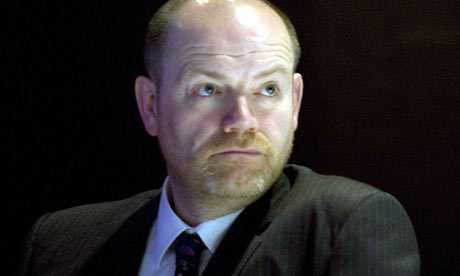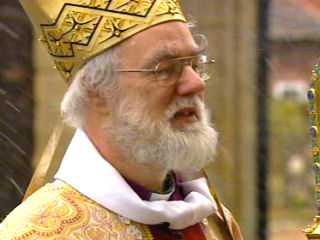BBC is right to allow BNP on Question Time, says Mark Thompson
 Censorship is decision for ministers not broadcasters, insists corporation chief
Censorship is decision for ministers not broadcasters, insists corporation chief
The BBC‘s director general, Mark Thompson, today robustly defends the corporation’s decision to invite the BNP leader, Nick Griffin, on to Question Time, and challenges the government to change the law if it wants to censor the far-right group.
Writing in the Guardian, Thompson says ministers would have to impose a broadcasting ban on the party – as Margaret Thatcher did with Sinn Féin in the 1980s – before the BBC would consider breaching its “central principle of impartiality”.
Griffin was not asked on to the flagship current affairs show out of “some misguided desire to be controversial”, he says, but because it is the public’s right “to hear the full range of political perspectives”.
He adds: “It is a straightforward matter of fact that … the BNP has demonstrated a level of support which would normally lead to an occasional invitation to join the panel on Question Time. It is for that reason alone … that the invitation has been extended.”
In what appears a direct challenge to the cabinet – including the Wales secretary, Peter Hain, who has argued vociferously for Griffin’s invitation to be rescinded – Thompson says: “The case against inviting the BNP to appear on Question Time is a case for censorship … Democratic societies sometimes do decide that some parties and organisations are beyond the pale. As a result they proscribe them and/or ban them from the airwaves.”
Referring to the ban on Sinn Féin in the 1980s, he says the BBC opposed the move by the Thatcher government, but abided by it. The corporation would similarly abide by a decision to proscribe the BNP.
“My point is simply that the drastic steps of proscription and censorship can only be taken by government and parliament … It is unreasonable and inconsistent to take the position that a party like the BNP is acceptable enough for the public to vote for, but not acceptable enough to appear on democratic platforms like Question Time. If there is a case for censorship, it should be debated and decided in parliament. Political censorship cannot be outsourced to the BBC or anyone else.”
Thompson says the BNP will be challenged tenaciously on the programme.
Hain described Thompson’s position as “plain wrong”. He said: “He is dodging the fact the BNP is a racist, fascist party in complete contradiction to the BBC’s own equal opportunities and anti-racist policies. The BBC are in total denial about their gifting of a massive early Christmas present to the BNP. This is probably the worst decision the BBC has made in recent times.”
Following an emergency meeting last night, the BBC Trust rejected appeals against Griffin’s invitation to appear on the programme, saying it was “a question of editorial judgment”.
Griffin, who is an MEP, arrived in London from Strasbourg and will begin preparations for the show at a secret location this morning before travelling to Television Centre by car in time for the planned 6pm recording. The BNP is so concerned about its leader’s security that it explored chartering a private helicopter to get him to the studio, but was told by the BBC there was nowhere for it to land. Anti-fascist protesters are planning a rally outside Television Centre with members of the broadcasting union Bectu.
Griffin told the Guardian he admired Thompson’s “personal courage” by inviting him. He described one of his fellow panellists, the Conservative peer Lady Warsi, as “a token Asian Muslim woman” and, in a message to supporters, said the debate was his chance to “take on the corrupt, treacherous swine destroying our beautiful island nation”.
He predicted it would be “political bloodsport” when he faces Warsi, Jack Straw, the justice secretary, Chris Huhne, the Lib Dem home affairs spokesman, and Bonnie Greer, a black American playwright and critic who lives in Britain.
Ben Bradshaw, the culture secretary, said: “I have always thought we have to take the BNP on. I have always thought they condemn themselves as soon as they open their mouths. In a democracy where they have elected representatives not just at European level but at local level it is very difficult for a broadcaster to exclude them … We should not give these people the opportunity to claim they are being gagged.”





